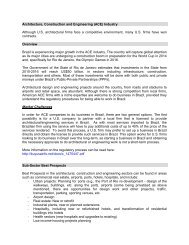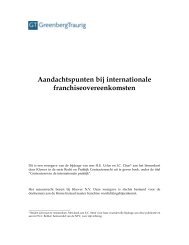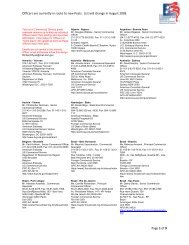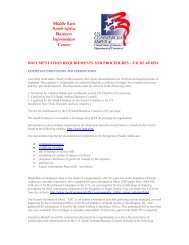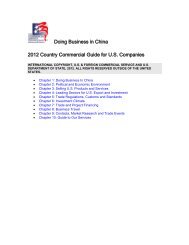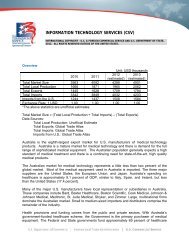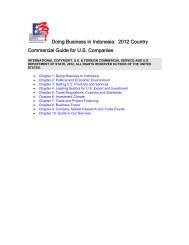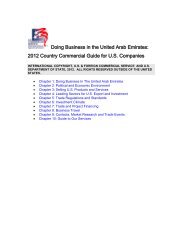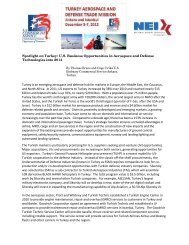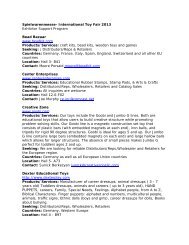2011 Bahrain Country Commercial Guide - US - Export.gov
2011 Bahrain Country Commercial Guide - US - Export.gov
2011 Bahrain Country Commercial Guide - US - Export.gov
You also want an ePaper? Increase the reach of your titles
YUMPU automatically turns print PDFs into web optimized ePapers that Google loves.
<strong>Bahrain</strong>'s underdeveloped insurance market possesses significant profit potential for<br />
investors. Total insurance premiums for companies operating in <strong>Bahrain</strong> increased 5.7<br />
percent to $389 million, up from $368. As of <strong>2011</strong>, the industry included 177 companies,<br />
compared to 179 in 2009. This decrease is due to heavy competition and consolidation<br />
as a response to the financial crisis.<br />
The Government of <strong>Bahrain</strong> (GOB) has identified Islamic banking as one of the main<br />
economic growth areas in the coming five years. Islamic banking principles are similar<br />
to those of conventional banking, with the exception that Islamic banks must conform to<br />
Sharia, or Islamic law. Islamic finance prohibits charging interest for the use of money,<br />
and disallows dealing in certain commodities. Islamic banking falls under four main<br />
categories:<br />
Murabiha: cost-plus financing – i.e., buying a product from a supplier and selling<br />
it to a customer for a profit;<br />
Musharraka: a profit sharing system that is similar to equity participation;<br />
Ijara: leasing;<br />
Istisna: the financing of construction or manufacturing.<br />
Islamic banking attracts investors because of its profit potential, as well as its religious<br />
and ethical approach. While the sector is still small, it has registered strong continual<br />
growth despite regional uncertainties that hindered growth in conventional banking.<br />
Islamic Banking became an engine of growth in the Kingdom of <strong>Bahrain</strong> and continues<br />
to attract high net-worth individual investors from GCC countries. This sector has grown<br />
by an average of 8 percent over the past three years. The Crown Prince and other<br />
<strong>gov</strong>ernment officials have voiced <strong>Bahrain</strong>'s commitment to developing the sector further.<br />
Due to the financial crisis and shortage of liquidity in the GCC region, growth in the<br />
financial and the insurance sector decreased sharply. During the financial crisis, the<br />
CBB played a major role in directing, monitoring, and advising Islamic banks to prevent<br />
failures.<br />
Web Resources Return to top<br />
<strong>Bahrain</strong> Bourse (Stock Exchange)<br />
http://www.bahrainbourse.net/bhb/default.asp?language=en<br />
Central Bank of <strong>Bahrain</strong> (CBB)<br />
www.cbb.<strong>gov</strong>.bh<br />
Ministry of Finance (MOF)<br />
http://www.mof.<strong>gov</strong>.bh/<br />
<strong>Bahrain</strong> Economic Development Board (EDB)<br />
http://www.bahrain.com/<br />
<strong>Bahrain</strong> Exhibition & Convention Authority Authority (BECA)<br />
www.bahrainexhibitions.com<br />
U.S. Embassy <strong>Bahrain</strong> <strong>Commercial</strong> Section<br />
37





